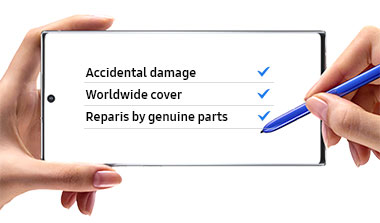Update KOI288 Official: Informasi Mesin Slot & Tren Permainan Harian
Akses Informasi KOI288: Referensi Slot Gacor dan Data Permainan Terbaru Hari Ini
- Akses informasi KOI288 yang mudah dibuka dan aman untuk mendapatkan pembaruan harian
- Data permainan diperbarui secara rutin, termasuk tren game populer dan pergerakan performanya
- Rangkuman referensi mesin slot gacor yang banyak dicari pengguna untuk pengalaman bermain yang lebih terarah
- Tampilan responsif agar navigasi dan pengecekan info permainan berjalan lancar tanpa hambatan
Konten di KOI288 diperbarui setiap hari untuk membantu pengguna mengikuti tren mesin slot dan insight permainan terbaru.


KOI288: Link Slot Koi Bonanza Gacor dengan Akses Login Resmi Koi288
Daftar- Informasi KOI288 disajikan melalui halaman resmi yang ringan dan mudah diakses, sehingga pengguna dapat membuka detail slot koi bonanza dan layanan utama tanpa hambatan.
- Pembaruan harian KOI288 dirangkum singkat untuk membantu pengguna memantau permainan koi yang sedang stabil, gacor, dan sering dipilih pemain hari ini.


Tambahan Menarik Lainnya
- Selected Items(0)
- Saldo eVoucher saya
- Biaya Tambahan
- Selected Items(0)
- Saldo eVoucher saya
- Biaya Tambahan
Sound devices
HW-Q900A 7.1.2ch Samsung Q-Symphony Cinematic Dolby Atmos Q-Series Soundbar (2021)
HW-Q900A/XU
Seller: Vyper- 7.1.2ch sound
- True Dolby Atmos & DTS:X
- 8” Subwoofer
- Samsung Q-Symphony
- Alexa Built-In
-
True 7.1.2ch Sound
-
3D Object Based Sound
-
Samsung Q-Symphony
-
Built-In Centre Speaker
KOI288: Link Slot Koi Bonanza Gacor dengan Akses Login Resmi Koi288
Harap pindai Kode QR dengan perangkat mobile Anda, dan letakkan gambar produk di tempat yang diinginkan.
Pilihan Slot Koi Tergacor Hari Ini di KOI288
Data permainan koi di KOI288 diperbarui otomatis untuk membantu pengguna memantau slot yang sedang stabil dan sering dipilih hari ini.
Informasi Situs KOI288 Saat Ini

KOI288 Official – Update Informasi Harian
- Minimum Deposit Rp 20.000
- Minimum Withdraw Rp 50.000
- Metode Deposit Bank • E-Wallet • QRIS
Selamat, Anda telah mendapatkan diskon tukar tambah.
Harga akan bervariasi berdasarkan model dan kondisi perangkat lama. *S&K berlaku.
The device you are trading in is more valuable than the phone you are buying. Unfortunately we cannot credit you the excess value, so please remove the trade in device, or change the device you are purchasing
Perangkat lama Anda memiliki harga tukar yang lebih besar dari harga Galaxy baru yang akan Anda beli. Kelebihan harga tukar ini tidak dapat diuangkan ataupun dikembalikan.
Selamat, Anda telah mendapatkan diskon tukar tambah.
Harga akan bervariasi berdasarkan model dan kondisi perangkat lama. *S&K berlaku.
The device you are trading in is more valuable than the phone you are buying. Unfortunately we cannot credit you the excess value, so please remove the trade in device, or change the device you are purchasing
Perangkat lama Anda memiliki harga tukar yang lebih besar dari harga Galaxy baru yang akan Anda beli. Kelebihan harga tukar ini tidak dapat diuangkan ataupun dikembalikan.
Pilih Antara Anda
Beli langsung. Dapat lebih banyak.
Free & Fast Delivery
Gratis biaya antar ke seluruh Indonesia dengan Wintu pengiriman cepat
Live Tracking
Pantau status pengiriman produkmu secara real-time
🗓️ Terbaru: 2025-12-02
KOI288 adalah portal bertema slot koi bonanza yang menghadirkan akses login resmi dan informasi permainan yang disusun ringkas. Halaman ini dibuat untuk pemain yang ingin melihat update permainan tanpa harus membuka banyak sumber.
Link Login KOI288 Resmi
Melalui login KOI288, pengguna dapat membuka dashboard permainan dengan lebih stabil. Link telah disaring agar terhindar dari alamat palsu yang sering membingungkan pemain baru.
Info Slot Koi Bonanza & Update Singkat
KOI288 merangkum permainan bertema koi yang sedang ramai dimainkan, termasuk pola umum, ritme spin, dan karakteristik setiap game. Informasi disajikan sederhana agar mudah dibaca dari perangkat apa pun.
- Koi Bonanza – Stabil untuk permainan harian
- Koi Fortune – Pola ringan dan mudah dipahami
- Koi Gate Deluxe – Cenderung ramai di jam sibuk
- Koi Rise – Cocok untuk permainan santai
Cara Daftar KOI288
Untuk memulai, pengguna cukup mengisi data dasar pada halaman daftar, lalu mengikuti instruksi verifikasi. Proses dibuat cepat agar pemain bisa langsung masuk ke menu permainan.
Join KOI288 Hari Ini
KOI288 menyediakan link login resmi, update singkat permainan bertema koi, dan akses yang lebih aman. Halaman ini membantu pengguna melihat info penting tanpa proses yang rumit.




























